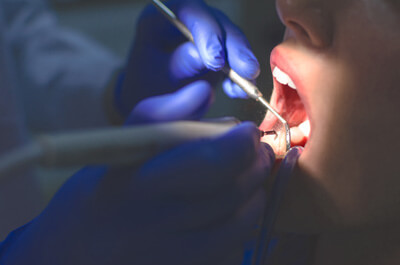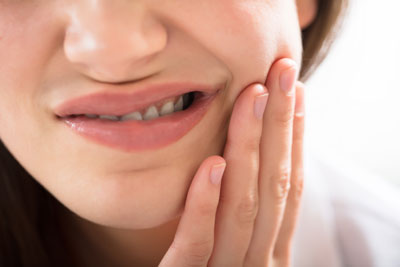Emergency Dentist in Hervey Bay
 At Dentist in Hervey Bay, we pride ourselves on giving unparalleled emergency dental care; if you’re experiencing extreme toothache and just can’t wait, we have plenty of appointments available for you. On top of this, we can offer you Saturday and late-evening Thursday appointments if necessary — meaning we’re open more than other dentists in the area.
At Dentist in Hervey Bay, we pride ourselves on giving unparalleled emergency dental care; if you’re experiencing extreme toothache and just can’t wait, we have plenty of appointments available for you. On top of this, we can offer you Saturday and late-evening Thursday appointments if necessary — meaning we’re open more than other dentists in the area.
A general appointment elsewhere may be days or weeks away, and most dental problems can make it difficult to eat, drink, or even sleep; waiting this long is often not an option. Our qualified team has the availability and experience to help you with any dental concern, no matter how severe or urgent.
NEW PATIENTS
What is a Dental Emergency?
A dental emergency is a situation that requires immediate treatment and encompasses anything from an intense amount of pain to the possibility of infection or something that could contribute to other health issues.
Dental emergencies can include:
- Facial swelling: Often due to infection or abscess in the mouth, facial swelling can affect the jaw or gums, causing pain, warmth, tenderness, and possibly fever. Treatment may include a dental exam, antibiotics, drainage, and pain relief.
- Damage to the jaw or mouth: Trauma from accidents or sports can lead to fractures, dislocation, or bruising. Symptoms include pain, limited jaw movement, or an abnormal bite. Treatment might involve jaw stabilisation, imaging like X-rays, and sometimes surgery for fractures.
- Toothache that doesn’t go away with painkillers: Ongoing pain unrelieved by medication may signal a cavity, infection, or nerve issue, often accompanied by sharp, throbbing pain, temperature sensitivity, and swelling. Treatment could include fillings, root canals, or other restorative procedures.
- Uncontrolled bleeding in the mouth, especially after surgery: Persistent bleeding, especially post-surgery, may point to healing issues or clotting disorders. Our dentist may control bleeding through hemostatic methods and offer home care guidance.
- Tooth fractures that expose a nerve: Exposed nerves from a fracture cause sharp pain and sensitivity, leaving the tooth prone to infection. Treatment includes covering the nerve and arranging for restorative care like a crown or root canal.
- Ulcers that last longer than three weeks: Persistent oral ulcers might indicate an infection or, in rare cases, oral cancer. Symptoms include pain, difficulty eating, and non-healing sores. Treatment involves an evaluation, pain management, and potentially further investigation.
- A dental abscess: A pus-filled area from a bacterial infection, usually near the tooth root or gums, causes severe pain, swelling, a bitter taste, and sometimes fever. Treatment typically includes abscess drainage, antibiotics, and addressing the infection through a root canal or extraction.

Emergency Dental Care Tips
Between getting in touch with us and your appointment, there are still plenty of ways you can look after your teeth to prevent the issue from getting worse.
For toothache, cracked teeth, or oral bleeding, slowly rinse your mouth out with warm water to clean the area; this helps avoid complications further down the line. Be gentle when taking painkillers, and make sure that you don’t exceed the recommended dose; over-the-counter numbing gel can also help to reduce the pain.
Resting a cold pack against your face, specifically near the affected area, can also provide relief from all kinds of tooth pain. If a tooth comes loose and putting it back in the socket doesn’t work, you can store it in a cup of milk until your appointment.
Frequently Asked Questions
What should I do if I knock out a tooth?
Can I get treatment for a severe toothache outside regular office hours?
How soon should I seek treatment for a broken or chipped tooth?
Will my dental insurance cover emergency treatment?
How can I manage pain and discomfort before I see the dentist?
Contact Us Today
Contact us to book an emergency dental appointment in Hervey Bay today.
CONTACT US

